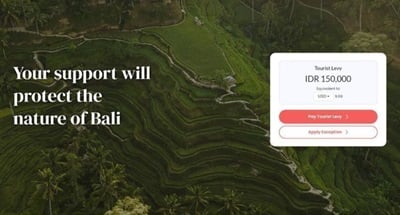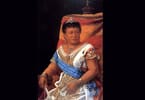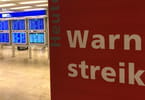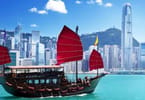Close ties to France since independence in 1960, the development of cocoa production for export, and foreign investment made Côte d’Ivoire one of the most prosperous of the tropical African states, but did not protect it from political turmoil.
In December 1999, a military coup – the first ever in Côte d’Ivoire’s history – overthrew the government. Junta leader Robert Guei blatantly rigged elections held in late 1999 and declared himself the winner. Popular protest forced him to step aside and brought runner-up Laurent Gbagbo into liberation. Ivorian dissidents and disaffected members of the military launched a failed coup attempt in September 2002. Rebel forces claimed the northern half of the country, and in January 2003 were granted ministerial positions in a unity government under the auspices of the Linas-Marcoussis Peace Accord. President Gbagbo and rebel forces resumed implementation of the peace accord in December 2003 after a three-month stalemate, but issues that sparked the civil war, such as land reform and grounds for citizenship, remained unresolved.
Elections were finally held in 2010 with the first round of elections being held peacefully, and widely hailed as free and fair. Laurent Gbagbo, as president, ran against former Prime Minister Alassane Ouattara. On 2 Dec 2010, the Electoral Commission declared that Ouattara had won the election by a margin of 54% to 46%. The majority of the rest of the world’s governments supported that declaration, but the Gbagbo-aligned Constitutional Council rejected it and then announced the country’s borders had been sealed.
The presidential election led to the 2010–2011 Ivorian crisis and to the Second Ivorian Civil War. After months of unsuccessful negotiations and sporadic violence, the crisis entered a critical stage as Ouattara’s forces seized control of most of the country.
By Apr 2011, pro-Ouattara forces had penetrated Abidjan and street-level combat between the two sides led to the capture of Gbagbo and the situation has now stabilized. However, many governments are still advising their citizens against travel to Côte d’Ivoire even though several thousand UN peacekeepers and several hundred French troops remain in Cote d’Ivoire to support the transition process.
Inter-city travel in Côte d’Ivoire is usually more comfortable than travel in neighbouring African countries. The roads are generally in good condition and the bus service is relatively modern. The down side is the very frequent military check-points which add hours to a trip. Though the stops are a hassle, Ivoirian soldiers tend to be pretty professional and don’t hassle non-French western travellers. Soldiers in Ghana for example are much more likely to demand a bribe than in Côte d’Ivoire. Most western governments recommend that their citizens steer clear of Côte d’Ivoire. This should be taken particularly seriously by people travelling on French passports. An Ivoirian soldier’s attitude towards you will change very quickly when you explain that you are not French.
UTB – Union de Transports de Bouake offers frequent busses to most destinations of interest. Their bus stations are widely known in the cities and are semi closed compounds so travel is not a hastle.
Travel in Abidjan is the best when you have your own vehicle to travel around. The roads are fairly good for the region, but traffic rules are flouted routinely, especially by taxis. There is no lane discipline and traffic lights are merely suggestions. Traffic jams get bad at rush hour and some selfish drivers make things worse through illegal and often reckless maneuvers. The police response to this is laughable, as they are unable to chase/punish the worst offenders and shake down people who aren’t doing anything wrong.
Taxis are a great and easy way to get around in Abidjan. Just look for an orange coloured car and flag it down. Fares are very affordable: US $2-4 depending on the length of the journey. Always negotiate before you get in the taxi — don’t use the meter as you’ll almost always pay more.
ZOMWE MUNGACHITE PA NKHANIYI:
- Rebel forces claimed the northern half of the country, and in January 2003 were granted ministerial positions in a unity government under the auspices of the Linas-Marcoussis Peace Accord.
- President Gbagbo and rebel forces resumed implementation of the peace accord in December 2003 after a three-month stalemate, but issues that sparked the civil war, such as land reform and grounds for citizenship, remained unresolved.
- The majority of the rest of the world’s governments supported that declaration, but the Gbagbo-aligned Constitutional Council rejected it and then announced the country’s borders had been sealed.





















